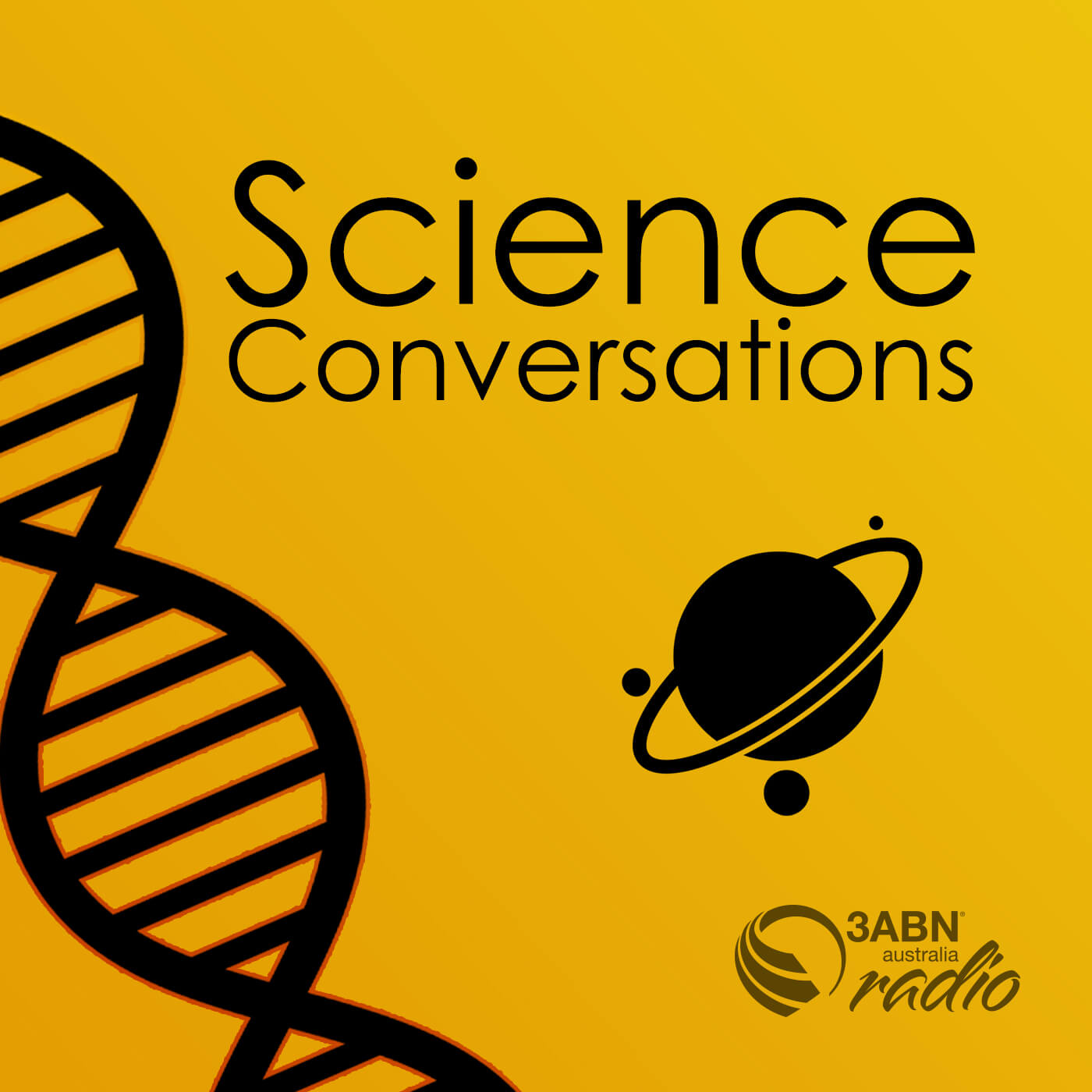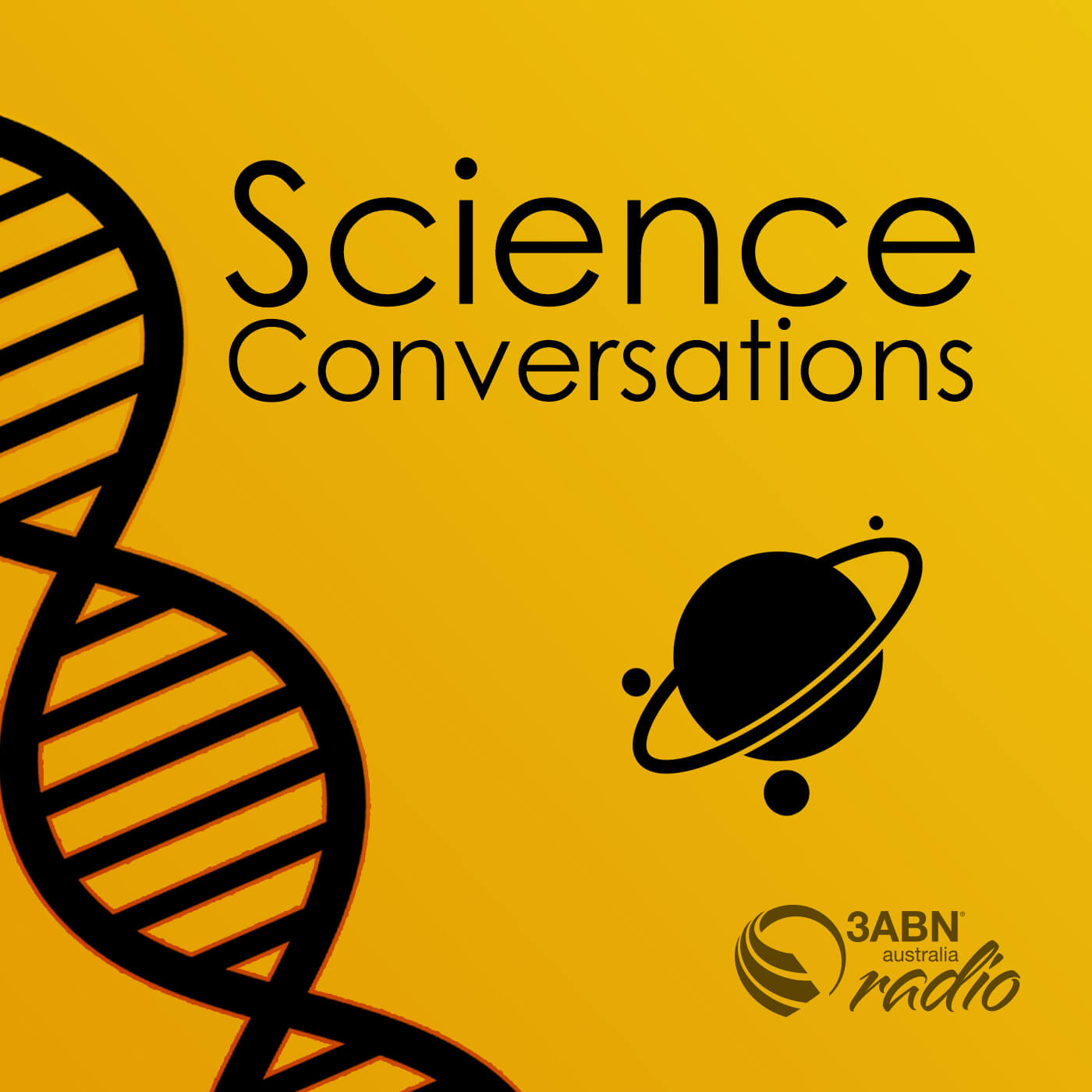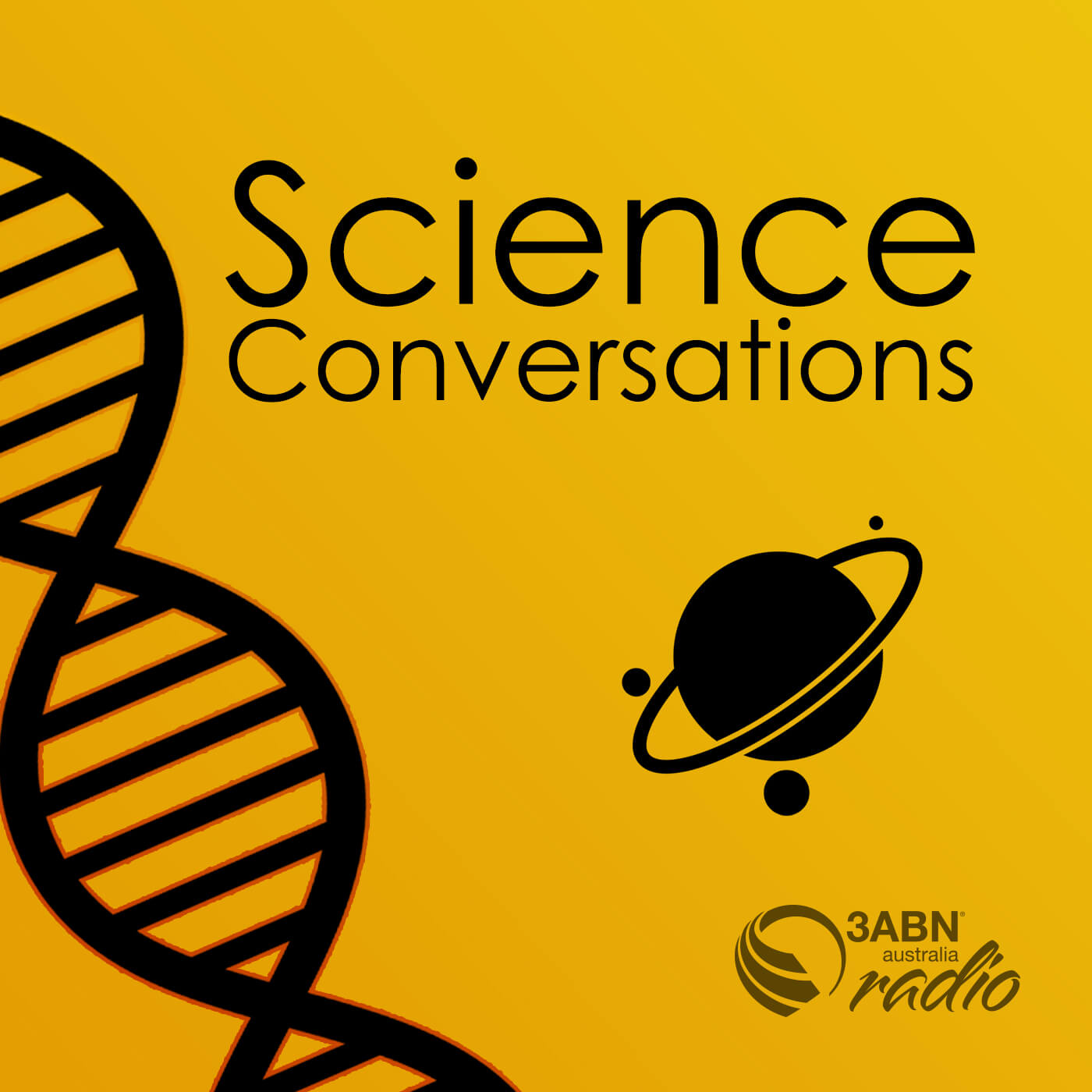Episode Transcript
SPEAKER 1
Welcome to Science Conversations. I'm Kaysie Vokurka. Is there any historical evidence for a worldwide flood? Joining me to discuss part three of this topic is Dr. John Ashton. Thank you for coming once again.
SPEAKER 2
Hello, Kaysie.
SPEAKER 1
And Dr. John Ashton has written a book entitled Evolution 12 Reasons why Evolution Cannot Explain the Origin of Life on Earth. We are referring to chapter 8 in this particular program. So you mentioned in our last part about how the Bible records Noah's grandsons and it lists the genealogies there and of course many of these founded some various nations around the world and we have records that link back to that. The Bible also records the lifespan of these individuals. What were some of their lifespans?
SPEAKER 2
Well, it's quite interesting that the Bible records that before the flood, at least of the patriarchs, their lifespans were in the order of 900 years, something like that. So I think the main ones that are listed, their lifespans range from about 895 to 970, something like that, years, nearly a thousand years, which seems, you know, very unrealistic. And this is one of the things that people often raise as a criticism of the, of the biblical account. It's interesting that after the biblical account lifespans decreased as in of the flood. Of the flood, yeah. So one of the things that people of course don't realize is that as the Bible account moves on and we have the descendants of Hem, Sham and Japheth are mentioned down and we come to the, the story of Abraham who was probably about the 10th generation post flood, there's quite a bit of historical evidence that corroborates with that. For example, we read from Josephus, for example, that Abraham took the knowledge of mathematics and astronomy from where he was in the Chaldeans in Samaria there, across to Egypt. And it's quite interesting that if you look at Egyptian history again from Mizraim through from the earliest of the pharaohs that are so called listed, if you have Mizraim, about the 10th one you get is Khufu or built Cheops. And it's interesting that pyramids built before that were not astronomically aligned or anything like that were not particularly well built. But Cheops 1 is amazingly astronomically aligned, perfectly square this, this sort of thing. So it fits this sort of interaction. And what a lot of people also don't realize was that Shem was still alive during Abraham's father's time, was still alive then. And so the ability to pass this knowledge on, matter of fact, Noah had only died just shortly before Abraham's time. As well, so what people don't realize was because of these long ages that people lived, particularly the pre flood generations lived, that was the ability to pass on accurately this record of the creation account and of the global flood. And you know, many people don't realize that because of the lifespans they live several hundred years after the flood these descendants of Noah's children lived. And this is a very important factor in terms of the accuracy now when we consider the other historical records of the flood, such as recorded on the Wel Blundell prism, which is in the Ashmole Museum in Oxford. So this is an account of the ancient king list, the Sumerian king list. This also mentions the flood. It mentions the eight pre flood patriarchs that correspond to the Bible account. But it gives some very long ages. It gives them ages in the order of 20 to 40,000 years. Very, very unrealistic ages and also post flood ones as being, you know, 10,000 years and so forth, which was again very unrealistic ages. When we look at the biblical account and people might still say, well you know, 900 years seems pretty unrealistic. If we look at today, there seems to be a cutoff limit around about 120 years for people to live. Some people may live a little bit longer than that it would seem. But when we look at the rate of genomic decay and breakdown, that seems to be the upper ceiling at the moment, 120 years. And it's interesting that Moses talked about that, God talked about that to Moses, that that would become the lifespan in modern times. Now the other fascinating effect is then after the flood people's lifespan dropped away. And what, what caused this? Now we know that after the flood people probably would have eaten meat before the flood obviously. But after the flood that was a recognized approved diet. Then because of the shortness of there was as much plant based food. And so research is done, for example at University of Sydney has shown that high meat diet reduces lifespan. So you know, that's established in modern times. But one of the fascinating things that I think has come out of research that's particularly coming out of Europe at the moment is in the area of what we call deuterium depletion. Our deuterium is an isotope of hydrogen. So most people have heard of hydrogen. We know that water is a combination of two atoms of hydrogen and an atom of oxygen. But hydrogen is an atom that has no neutrons in the nucleus. Now most atoms in their nucleus have protons and neutrons, but hydrogen has no neutron in the nucleus. But you can get hydrogen with a neutron in the nucleus, and. And that's called deuterium. So it has the same chemical properties as hydrogen. So if it combines with two oxygen, it becomes water, but we call it heavy water because the deuterium has twice the atomic weight of hydrogen. And now, one of the things that has been fascinating was discovered back in the 1930s, that deuterium seems to damage cells. And research done since, it seems to show that deuterium increases the rate at which DNA can mutate, so it increases the potential damage of DNA in cells. Now, another fascinating thing that has come out is that when they remove deuterium from water, and a lot of work was done prior to the Second World War in terms of building the atomic bomb because they wanted to increase the availability of heavy water, that is water containing deuterium. Because when they surrounded their reactors with heavy water, that would slow down straying, escaping heavy particles. And so it was very important to concentrate and produce deuterium. And as a result of that too, a lot of. And after the war, as atomic energy was being developed, there are a lot of studies done around the world of the deuterium content of water. Where was there a lot of deuterium? Where was there a little deuterium? And one of the fascinating things is that that came out of this, was that certain ancient waters that had been preserved were quite low in deuterium. And water, say up in the Arctic Circle, can be lower in deuterium, whereas groundwaters, deep down, groundwaters tend to be high in deuterium. Now, it's interesting, in the flood account, it talks about the waters of the deep, the fountains of the deep opened up. And it's believed, as we understand, I mean, we can't know, but it's believed that most of the water that inundated the earth came from this groundwater that was released as the fountains of the deep exploded. And we see that too, the evidence for the flood, when we look geologically, there's massive volcanic activity occurring, you know, lava flows, you know, coming all over the place. You wouldn't want to be living on the surface of the Earth really, when that sort of thing was happening. And so, and that's why we said the preservation of people was a special miraculous event. Now, one of the things that it seems to fit is that the water prior to the flood on the surface of the Earth was low in deuterium. And this can explain why a lot of. A lot of the prehistoric animals grew to very large proportion. Insects and, you know, they're always Finding, you know, these giant millipedes and dragonflies and these sort of things.
SPEAKER 1
This is in the fossil record?
SPEAKER 2
Yeah, in the fossil record, yes. Of grill. And what we find is that today, if we grow plants on deuterium depletable, in other words, we take the deuterium out of the water, that the plants grow more slowly, but also they have less mutations. And so deuterium depletion is currently being developed as a cancer treatment, because cancer cells then grow much more slowly. So the two things that happen, the presence of deuterium in water in our ecosystems increases damage to DNA, therefore would reduce lifespan, increases cancer, this sort of thing. When we deplete water, the opposite occurs. We remove the deuterium. So one of the scientific hypotheses that we can say is that after that, during the flood, this deuterium was released into the ecosphere. And this was responsible for the decline in ages after the flood because it increased the rate of genetic mutation. Now, one of the fascinating aspects of this is that Dr. John Stanforder, a geneticist that worked at Stanford University, I think it was, I remember anyone, one of the leading universities in the US has done a lot of studies in genomic decay. And this is well recognized now that the genomes of living systems are accumulating mutations. In other words, the offspring contain more genetic mutations than the parents. And so there's this slow decline. And this is one of the powerful reasons, again, why life on Earth really can't be more than about 10,000 years old, because the rate at which we would accumulate genetic mutations, if it was much older, would be so high that we would now be experiencing a lot more genetic damage in our bodies would be very evident. But one of the fascinating things is that the Bible records, because from the time that Moses wrote the biblical account, and Moses wrote that about probably 1600 BC, so some 15, 1600 BC in that sort of era. Since that time, there've been other Bible writers and they've recorded the ages that people lived in their particular time. When you plot these ages, you actually get a decay curve right back from, you know, the time of Shem and so forth, right through Abraham and so forth. Abraham lived, I think, to about 190 years, something like that and so forth, and they decay.
SPEAKER 1
So you went from Shem, who was about 600 or so years old when he died? I think that's correct. And then it drops down to like 400 and 300, 200 down into the hundred. Like it's just.
SPEAKER 2
That's right, yeah. Down to about like 120 years around the time of Moses, this sort of thing. Now, when you actually plot that data, believe it or not, it fits a genomic decay curve with a coefficient of 0.9. So it's a very good fish, a very good fit of data. And it can't possibly be contrived because these dates are written by the biblical historians separated by hundreds of years, and they're just recording what's happened at their time. And so we have this amazing decay curve and that are recorded in the Bible that fits scientifically what we would predict would happen from genomic decay. So we have two important scientific facts here that actually support the historical accuracy of the Bible. Secondly, the Bible records this genomic decay of age that we would expect to occur that fits this initial huge influx of deuterium into the ecosystem at that particular point hasn't continued on. And so the decay rate is from that initial decay rate of decay influx that occurred at that time. So that fits, you know, very, very well. And the fact that these ages then become quite realistic compared to the other mythical records, again adds value. You know, evidence that the biblical account is the accurate historical account, these other accounts involving 10, 20, 100,000 years sort of thing is not a feasible account. So we have this amazing evidence that fits the accuracy of the biblical account of what happened post flood as well. So we've got the separation into the different countries, the naming of those groups of people, and the historical timelines, and then this genomic decay all beautifully fits and corroborates the historical accuracy of the biblical account.
SPEAKER 1
Absolutely incredible that that data is there and that we can compare it. And then it, it really speaks to our minds as to and reason, really, isn't it, as to which one seems to fit better and be more credible. So thank you so much for sharing those insights on this very, very interesting question about the historical flood that was there. So next time we'll examine the question, is there a problem with radiometric dating, something that we've mentioned a few times. Be sure to join us for that.


